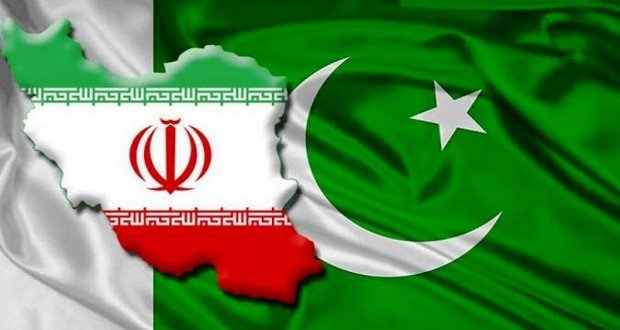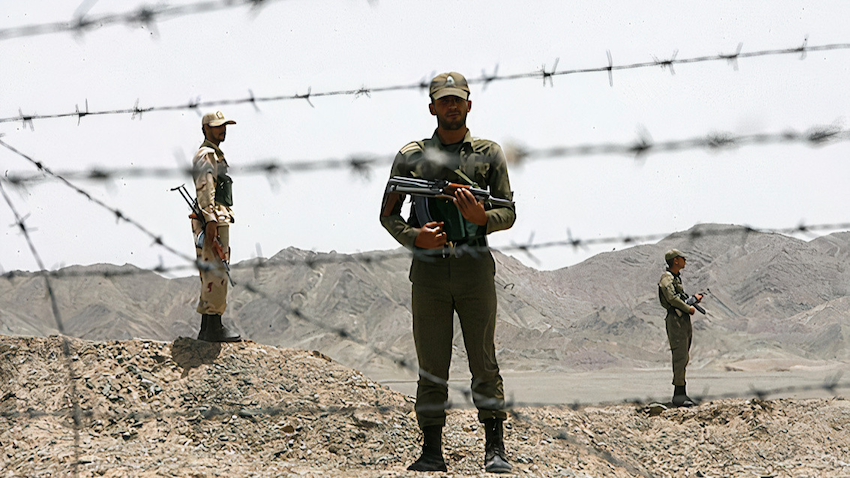Pakistan and Iran: The way forward

The beginning of this year was marked with escalating tensions between Iran and Pakistan. Early in January, an aggressive military action took place in which Iran launched missile attacks within Pakistan’s Balochistan province in hopes to target an Iran based terrorist group “Jaish al Adl”, this attack resulted in casualties including minors.
This faction, with known activities in Pakistan, has been linked to violent incidents within Iran’s southeastern regions. It emerged from a larger separatist organization “Jundallah” and claims to fight for the Baloch minority in Iran, advocating for enhanced living standards and greater rights.
Pakistan’s military response came swiftly, employing an array of weaponry to engage targets within Iranian territory associated with Baloch insurgent groups such as the BLA and BLF. The counterstrike, as per Iranian reports, resulted in several fatalities, none of whom were Iranian citizens.
As Israel’s bombardment of Gaza escalates tension across the region, the increased threat of a full-blown conflict has sent Islamabad and Tehran scrambling to pull back and rebuild diplomatic relations. On 29 January 2024 Iran’s foreign minister Hossein Amirabdollahian landed in Islamabad for “in-depth talks” with his Pakistani counterpart, Jalil Abbas Jilani both seeking to calm relations after carrying out tit-for-tat air strikes on each other’s territories. Amid the escalating tensions and the situation in Gaza, it has become crucial for Pakistan and Iran the two self-proclaimed superpowers of South Asia and the Middle East to build a facilitating relationship and obliterate any other possibilities for future conflict. In this article we will explore potential avenues that both the nations can, and have agreed to work on to strengthen their ties.
Economic Interests:
Both Iran and Pakistan have significant economic ties, with legal trade worth around $1.5 billion per year, further working to improve trade is crucial for both the nations to improve relations. After the January 29th meeting, both the nations have embarked on an ambitious journey to strengthen their economic relationship, with the target set to escalate their mutual trade to approximately $5 billion within the next five years. This vision is reinforced by the Iran-Pakistan gas pipeline initiative, poised to address Pakistan’s critical energy demands while securing a dependable customer for Iran’s abundant natural gas resources. The successful completion of this gas pipeline project is viewed as a milestone in strengthening the economic interdependence of both the countries.
There is also a focus on transport connectivity, which is crucial for facilitating trade and people-to-people exchanges, enhancing the potential for economic development in border areas. The two nations have recognized the importance of institutional mechanisms like the Joint Economic Commission (JEC) and Joint Trade Committee (JTC) for fostering closer cooperation. dialogue is underway to establish border markets to facilitate ease in trade and the movement of commodities, potentially catalyzing the growth of border regions and fostering broader economic cooperation in the area. This plan also aims at the elimination of trade hurdles and the implementation of a Comprehensive Trade Agreement to simplify the trade of a wider array of goods and services. Moreover the scope of this cooperation also includes joint developmental endeavors and investment opportunities, with Iran demonstrating considerable interest in expanding collaboration in diverse sectors. This includes fortifying banking operations and commercial interactions, aimed at not only increasing economic progress in both nations but also contributing to the stability and prosperity of the larger region.
Military Cooperation:
In response to the missile strikes exchanged between the two countries, Iran and Pakistan have agreed to broaden their political and security cooperation to confront terrorism. This includes deploying liaison officers in their respective border towns of Turbat and Zahedan to strengthen ongoing security and intelligence cooperation. Regular high-level meetings at both ministerial and military levels are planned to prevent future misunderstandings and ensure smooth communication. Furthermore Iran and Pakistan have recently agreed to deepen their defense and security collaboration, highlighted by the signing of a significant Memorandum of Understanding (MoU) between the Pakistan Maritime Security Agency (PMSA) and the border guards of Iran. This agreement marks a pivotal move towards enhancing mutual cooperation in critical sectors like maritime security, anti-terrorism efforts, and boosting regional economic links.
The agreement places a strong emphasis on securing maritime regions, a priority for both nations due to their strategic maritime locations and the crucial role of sea routes in global commerce and energy transit. Central to the MoU is a shared commitment to combat terrorism. This encompasses intelligence sharing, joint strategies to counter cross-border terrorist activities, and reinforcing the capacity to handle maritime security threats. The MoU also seeks to improve economic ties through enhanced maritime channels, which includes developing port infrastructures and promoting maritime trade routes, thus contributing to regional economic growth. The agreement potentially opens doors for combined naval drills and shared training programs, aimed at improving operational synergy and mutual understanding between the naval forces of both countries. It extends beyond counterterrorism to address other security issues like piracy, human trafficking, narcotics trade, and illegal fishing activities. The enhanced maritime cooperation between Iran and Pakistan is a significant step towards ensuring peace and stability in the Arabian Sea and the broader Indian Ocean area.

Combating Drug, Weapon and Human Trafficking:
Iran and Pakistan share a border of over 900 kilometers. Due to a volatile situation in Afghanistan there is an influx in trafficking along the Pak Iran border. Both the nations need to collaborate to tackle this issue in order to strengthen their ties. In the past Iran and Pakistan have made substantial efforts to strengthen their cooperation in combating drug trafficking. This collaboration is particularly vital given the challenges posed by the increase in poppy production in the region. To address these issues effectively, both countries have emphasized the importance of enhanced border cooperation. Both countries are focused on improving the exchange of information and intelligence to effectively combat drug trafficking. Efforts are being made to enhance border security, particularly in areas prone to smuggling activities. This includes identifying and addressing narcotics demand in regions close to the border. There is a willingness to conduct joint operations against drug traffickers. Additionally, Iran has offered to train Pakistani forces, reflecting a commitment to share expertise and resources in the fight against drug trafficking. The approach to combating the drug problem includes addressing production, demand, supply, and consumption, recognizing that overcoming these challenges can enhance overall societal peace. The commitment to mutual assistance and strengthening relations and cooperation between the anti-narcotics forces of both countries highlights the shared understanding of the seriousness of the drug problem and the need for collaborative efforts.
Controlling refugees:
Iran and Pakistan, both face similar challenges due to the influx of undocumented Afghan refugees, both the nations can collaborate effectively to manage this issue and strengthen their ties. As Pakistan has been successful in the past a key component of this collaboration involves sharing experiences and strategies to address the refugee crisis, including providing humanitarian aid and support for sustainable reintegration. Both countries can work together, Coordinating efforts to provide humanitarian assistance to Afghan refugees. This includes addressing basic needs such as food, shelter, and healthcare and Working with international organizations like the UNHCR and IOM to ensure effective management and support for refugees. Both nations need to develop programs for sustainable return and reintegration of refugees in Afghanistan, in collaboration with the Afghan government and international partners, Sharing data and conducting joint research to understand the dynamics of refugee movements and their impact on host communities.
By working together on these fronts, Iran and Pakistan can not only address the immediate needs of Afghan refugees but also contribute to the stability and development of both the regions.
Cultural and Media collaboration:
Pakistan and Iran are taking steps to enhance their cultural and media collaboration, with a focus on joint film productions. One such significant project is a film about the renowned poet Allama Muhammad Iqbal, a shared cultural heritage of both countries. This initiative is part of a broader effort to develop cultural and artistic ties between Iran and Pakistan. The film project was discussed during a meeting between cultural representatives of both countries on the sidelines of a meeting of the Ministers of Culture of Islamic countries in Doha. This collaboration indicates a commitment to not only strengthen bilateral relations but also to celebrate and promote shared cultural legacies